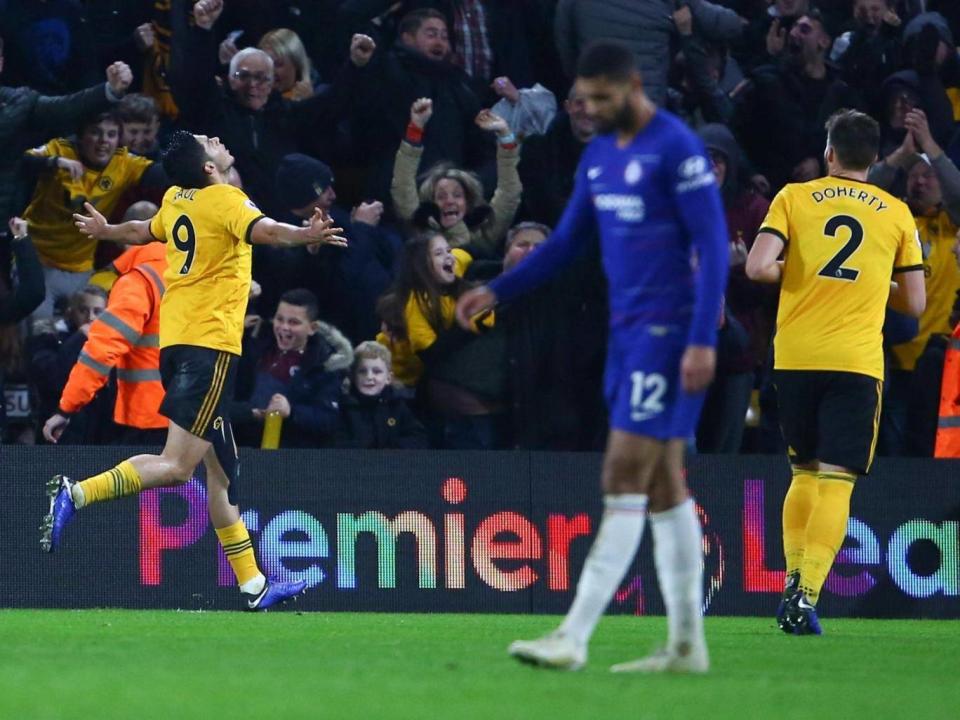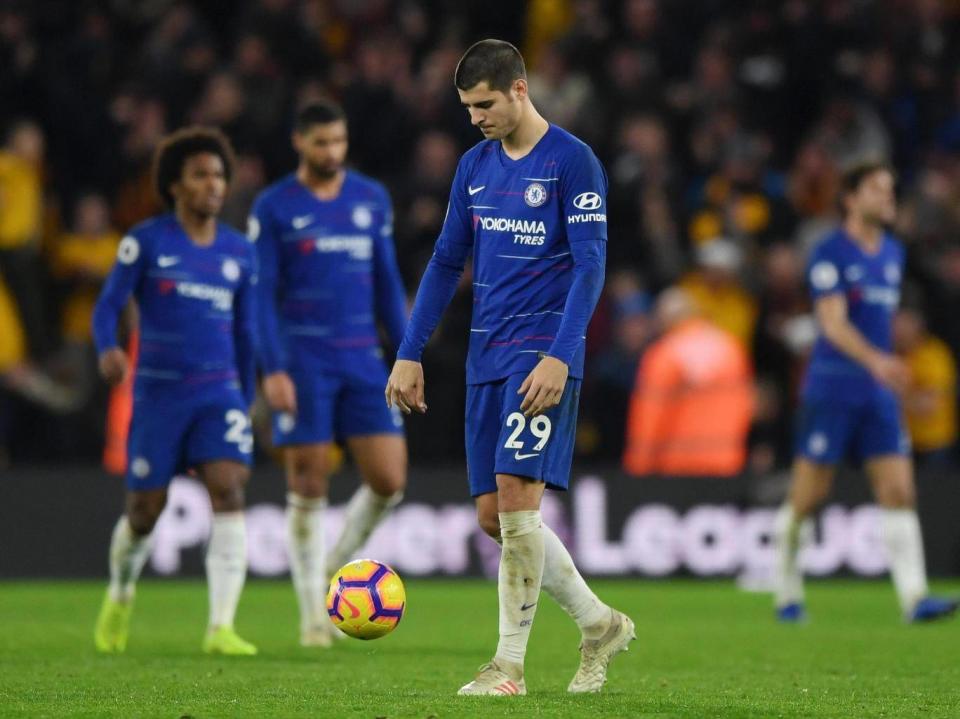Maurizio Sarri questions Chelsea’s ability to handle adversity ahead of Manchester City clash
Maurizio Sarri believes that the solution to Chelsea’s problems in-game management lie in the collective, rather than in individuals.
Chelsea have lost two of their last three Premier League games, to Tottenham and Wolves, and Sarri said at his press conference on Friday the team went into “blackout” as soon as something turned against them. “We have a problem to manage the match at the moment,” Sarri said. “In the last two matches we played well for 55-60 minutes but then, at the first difficulty, we went in blackout.”
Sarri used that word three times in his press conference at Cobham this afternoon, and when asked to explain it he said that there was no collective bonds between the players. That each man reacted in his own way, rather than as part of a whole. His challenge now, five months into the job, is to turn those players into a collective.
“It's not really very easy to answer that,” Sarri said, when asked why his players could not react to set-backs. “It is not easy. But I saw in the last matches that, when there is the first difficulty, we went in blackout or, better, we didn't react as a team. But as 11 players. In 11 different ways. So it is a big problem.”
So how to do you stop this from happening? Sarri was asked if his team needed a “leader”, although top-down leadership is still a fundamentally individualistic model. This is the club where John Terry was deified for years as “Captain, Leader, Legend”, and many people are still hoping for someone to come in and fill that void

Sarri does not see the game that way. He does not want one player to take over and impose himself on the others. He wants all the players to join together in a collective that will be stronger than anything led by one man. That process will not happen overnight but for Sarri it has to start with a ‘collective target’, to get the players seeing themselves as parts of a bigger whole.
“We need leaders, but I think we also need a collective target. That can give us motivation, and the motivation can give us determination. I saw that, in some matches, we lack determination. Like in the last match. I think we were not able to have the right determination to win the match.”
Even after Chelsea’s strong start to the season, Sarri knows that this process will take plenty of time. You cannot turn parts into a whole with one wave of a magic wand. He would not put a timescale on the process.
“It's difficult to say because you cannot change the mentality in one day,” Sarri said. “You can change the mentality day by day, only one percent a week, maybe. So it's a long way. It's difficult to say now that we've changed the mentality. It's a long story.”
Ultimately Sarri knows that progress will not be quick and nor will it be linear. That was the lesson of Manchester City under Pep Guardiola in 2016-17, when they started well but faded fast, and Sarri expects the same process at Chelsea this year. Progress will always be followed by set-backs. The gains of one week are not necessarily the new permanent baseline.

“You cannot pass from three, four, five, six, seven, eight... it's impossible. The way is two, seven, five, eight. I knew very well that, sooner rather than later, we'd have to face difficulties. When you change the way of playing, the way of football, you need to change the mentality, and you need to change the mentality in 25 minds. So it's not a short way. It's very difficult. But, after the solution of the difficulties, you can create something very important.”

